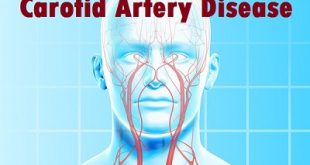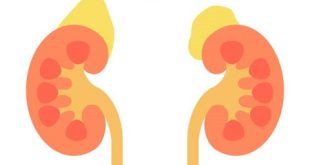What is Catarrh?
Catarrh is when mucus accumulates in your nose, throat, or sinuses. The word “catarrh” comes from an ancient Greek phrase meaning “to flow down.” In fact, if you have catarrh, you may feel as if mucus is slowly dripping down the back of your throat.
The word “catarrh” isn’t very common in the United States. Another term for catarrh that you may be more familiar with is “postnasal drip.”
It’s believed that catarrh happens when your body responds to things like an infection or an irritant. This reaction can cause swelling in your nose and sinuses, leading to an increase in the amount of mucus that’s made.
Catarrh is often only temporary. However, in some people, it can become chronic. While it’s unclear what causes chronic catarrh, it’s believed to occur due to an increased awareness of and sensitivity to symptoms affecting the nose and throat.
Two Types of Catarrh
There appears to be two types of catarrh.
- There are some patients who experience catarrh with an excess of mucus that actually runs out of their nose (known as ‘rhinitis’).
- There are other patients, however, who experience the same sensation of an excess of mucus but are unable to clear anything out of their nose or their throat. This can be frustrating for them.
Mechanism of Catarrh
The exact mechanism of catarrh depends on its etiology, but usually involves increased production of mucus from the nasal mucosa. In addition to providing sense of smell, the nasal cavity serves to filtrate and regulate the temperature and humidity of inspired air. The nasal mucosa can produce secretions, or mucus, that provides lubrication and protection for the nasal cavity. This mucus production is activated by the autonomic nervous system; specifically, cholinergic neuropeptides are responsible for increasing mucus production. Excess mucus can drain posteriorly into the upper and lower airways, which, along with other physical and chemical irritants, can activate receptors in the respiratory tract that results in a protective physiological cough
Causes of Catarrh
Catarrh usually occurs when the immune system reacts to an infection or irritation. This causes the lining of your nose and throat to become swollen and produce mucus.
Triggers include:
- A cold or other infection
- Hay fever or other types of allergic rhinitis
- Non-allergic rhinitis
- Nasal polyps
It’s unclear what causes chronic catarrh, but it’s not thought to be the result of an allergy or infection.
It might be from a problem in the way mucus travels through the nose. It could also be caused by a sensitivity to mucus in the back of the nose and throat.
What are the risk factors for Catarrh?
Risk factors include:
- Cigarette smoking. Being a current or former smoker is a major risk factor for catarrh. It is caused by breathing cigarette toxins or second-hand smoking directly into your lungs.
- Exposure to someone with respiratory infections. Respiratory infections can be very contagious.
- Allergies. People with allergies have an increased risk of developing catarrh when exposed to a specific allergy trigger.
- Environmental. Some work places could have irritants in the air that you can breathe in and develop catarrh. High-pollution areas or using coal for cooking or heating can also increase your risk of catarrh.
- Chronic lung diseases. People with asthma, enlarged airways (called bronchiectasis), COPD, and previous lung infections that have left scars on the lungs are at increased risk of developing catarrh.
- Female sex. Women have a more sensitive cough reflex than men, increasing their risk of developing chronic catarrh.
What are the symptoms of Catarrh?
Aside from the feeling of mucus in the back of the nose or throat, there are a number of other symptoms of catarrh, including:
- A sensation of nasal congestion
- Ineffective nose blowing
- Throat discomfort
- Crackling or dragging sensation in the ears
- A sensation of choking or something stuck in the throat
- A constant cough or of feeling sick
Complications of Catarrh
Catarrh can lead to a:
- Constant need to clear your throat
- Feeling that your throat is blocked
- Blocked or stuffy nose that you can’t clear
- Runny nose
- Feeling of mucus running down the back of your throat
- Persistent cough
- Headache or facial pain
- Reduced sense of smell and taste
- Crackling sensation in your ear and some temporary hearing loss
These problems can be frustrating to live with and may affect your sleep, making you feel tired.
Catarrh diagnosis
Most cases of acute catarrh do not need to be diagnosed as the underlying infection should pass quickly without treatment.
Chronic Catarrh
A number of different methods can be used to diagnose the causes of chronic (persistent) catarrh.
Your doctor may examine your nose to check that there are no nasal polyps. They may also recommend that you have a CT scan to check for polyps that are not visible to the naked eye.
Your doctor may also want to check that your catarrh is not the result of an allergic reaction. They may ask whether your symptoms are worse in particular environments, or at certain times of the day or year. This will help them to pinpoint a possible allergen (substance that causes an allergic reaction).
If your doctor suspects that an allergic reaction is causing your catarrh, they may refer you for allergy testing. This will usually involve a skin prick test, where allergens are placed on your arm and introduced into your skin by pricking it with a short pin. If there is a positive reaction, the skin in that area will become itchy, red and swollen.
Chronic catarrh can also be caused by non-allergic rhinitis. However, diagnosing non-allergic rhinitis can be difficult because it shares many of the same symptoms as allergic rhinitis, but there are no specific tests for the condition. If tests show that you are not having any allergic reactions, a diagnosis of non-allergic rhinitis can be made.
Treatments for Catarrh
Most catarrh cases require no specific treatment. But if it does not clear up on its own, treatment then depends on the underlying cause. Try the following:
Decongestant medicines
- These can help relieve a blocked nose by reducing swelling of the blood vessels in your nose. These are available from pharmacies without a prescription but should not be used for more than a few days before seeking advice as they can occasionally make the congestion worse if used for too long.
- Decongestants do not usually cause side-effects and, if they do, they are likely to be mild, but may include irritation to the lining of the nose, nausea and headaches.
Steam inhalation
- Steam inhalation treatment may also help. This involves inhaling steam from a bowl of hot (but not boiling) water and can help to soften and loosen any mucus in the nasal cavities.
- Some people find that adding menthol crystals or eucalyptus oil to the water also helps. Steam inhalation is not recommended as a suitable treatment for children due to the risk of scalding.
Saline sprays
- Saline (salt water) sprays or drops can also soften and loosen the mucus and help relieve symptoms.
Prescription medications
- If a person has chronic catarrh, their doctor may recommend ipratropium (Atrovent) or beclomethasone (Beconase) and triamcinolone (Nasacort).
- Atrovent is a nasal spray that reduces the amount of mucus the body makes. Beconase and Nasacort are steroid sprays that can help ease the symptoms of chronic catarrh.
Home Remedies
There are things you can try at home to relieve your symptoms, such as:
- Avoiding things that trigger your symptoms, such as allergens or smoky places
- Taking sips of cold water when you feel the need to clear your throat – constantly clearing your throat may make things worse
- Using a saline nasal rinse several times a day – these can be bought from a pharmacy or made at home with half a teaspoon of salt in a pint of boiled water that’s been left to cool
- Avoiding warm, dry atmospheres, such as places with air conditioning and car heating systems – placing plants or bowls of water in a room may help to keep the air humid
- Staying well hydrated
- Talking to a pharmacist about suitable over-the-counter medications – including decongestants, antihistamines or steroid nasal sprays
There are also several remedies, such as herbal medicines, available from health shops and pharmacies that claim to treat catarrh. Some people find these helpful, but there’s generally little scientific evidence to suggest they work.
Outlook of Catarrh
Catarrh is a common occurrence. The best way to avoid it is to eliminate allergens or other triggers whenever possible. Most cases of postnasal drip are bothersome but clear up on their own.
Over-the-counter medications and home remedies are often successful treatments. People who experience persistent postnasal drip or postnasal drip accompanied by additional symptoms should see their doctor for diagnosis and treatment.
 Diseases Treatments Dictionary This is complete solution to read all diseases treatments Which covers Prevention, Causes, Symptoms, Medical Terms, Drugs, Prescription, Natural Remedies with cures and Treatments. Most of the common diseases were listed in names, split with categories.
Diseases Treatments Dictionary This is complete solution to read all diseases treatments Which covers Prevention, Causes, Symptoms, Medical Terms, Drugs, Prescription, Natural Remedies with cures and Treatments. Most of the common diseases were listed in names, split with categories.








Ihave finished fourteen years with this problem I have asthma and difficult in breathing mostly during the climatic conditions in the place that I live in what medication should I take in order to get cured.
For a complete cure, please consult a doctor to get treated from Catarrh.
I want to know the types drugs for chronic catarrh
For chronic catarrh, treatment options may include decongestants, antihistamines, nasal steroids, and expectorants, which can help alleviate symptoms. Saline nasal irrigation is another option to reduce nasal congestion. In cases of bacterial infection, antibiotics may be prescribed. Consultation with a healthcare professional is crucial for an accurate diagnosis and personalized treatment plan based on the underlying cause of the chronic catarrh.
what of AFB test
The Acid-Fast Bacillus (AFB) test is not typically associated with assessing common respiratory conditions like catarrh. If you are experiencing persistent respiratory symptoms such as chronic cough, chest pain, or difficulty breathing, consult with a healthcare professional for a proper diagnosis. They may recommend various tests based on your symptoms, such as chest X-rays or sputum cultures, to identify the underlying cause. Self-diagnosis is not recommended, and seeking professional medical advice is crucial for accurate assessment and appropriate treatment.
catarrh can be cure